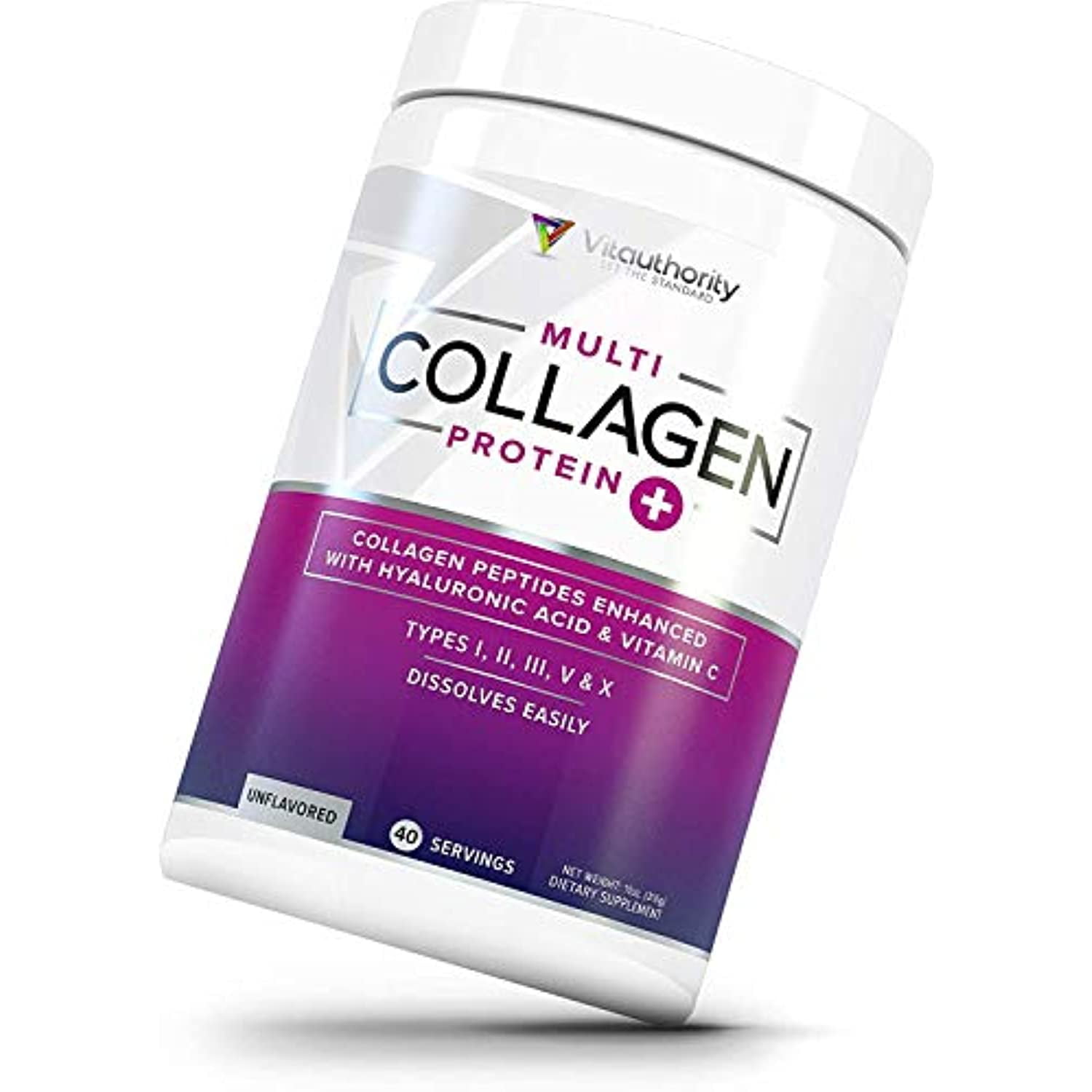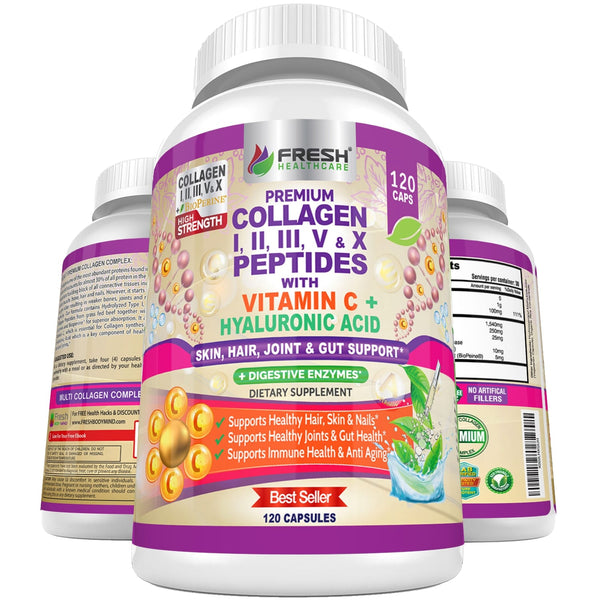Collagen Peptides With Hyaluronic Acid And Vitamin C

The dietary supplement industry continues to evolve, with consumers increasingly seeking products that promise multifaceted health benefits. Among the latest trends gaining traction are collagen peptide supplements formulated with hyaluronic acid and vitamin C, marketed for their potential impact on skin health, joint function, and overall well-being.
These supplements are flooding the market, promising a convenient way to combat the visible signs of aging and support a more active lifestyle. Understanding the science behind these claims and the regulations governing these products is crucial for consumers navigating this increasingly crowded space.
What are Collagen Peptides?
Collagen is the most abundant protein in the human body, providing structure to skin, bones, tendons, and ligaments. As we age, collagen production naturally declines, leading to wrinkles, joint pain, and decreased bone density.
Collagen peptides are derived from animal sources like bovine, porcine, or marine collagen, broken down into smaller, more easily digestible fragments. These peptides are believed to stimulate the body's own collagen production when ingested.
The Added Benefits: Hyaluronic Acid and Vitamin C
Hyaluronic acid, a naturally occurring substance in the skin and connective tissues, is known for its ability to retain moisture. It's often included in these supplements to enhance skin hydration and elasticity, complementing collagen's structural support.
Vitamin C, an essential nutrient and potent antioxidant, plays a crucial role in collagen synthesis. Supplement manufacturers often include Vitamin C, as it is marketed as an additional measure to support the body's own collagen production and protect against free radical damage.
Scientific Evidence and Claims
Studies on collagen peptides have shown promising results in some areas. A 2014 study published in the journal Skin Pharmacology and Physiology, for instance, found that oral collagen peptide supplementation significantly improved skin elasticity in women.
However, not all studies are created equal, and the size and scope of these investigations vary considerably.
Research has indicated potential benefits for joint health, with some studies suggesting that collagen peptides may reduce joint pain in athletes and individuals with osteoarthritis. However, larger, more rigorous trials are needed to confirm these findings and establish optimal dosages.
While proponents claim a range of benefits, from improved gut health to stronger nails, the scientific evidence supporting these assertions remains limited. Consumers should be wary of exaggerated claims and seek advice from healthcare professionals.
Regulatory Landscape and Safety Concerns
In the United States, dietary supplements, including collagen peptides, are regulated by the Food and Drug Administration (FDA) as food, not drugs. This means that they are not subject to the same rigorous testing and approval processes as pharmaceuticals.
The FDA does not evaluate the efficacy of dietary supplements before they are marketed, but it does monitor for safety concerns. Manufacturers are responsible for ensuring that their products are safe and accurately labeled.
However, the potential for mislabeling and contamination exists, highlighting the importance of purchasing supplements from reputable brands that undergo third-party testing. Consumers should also be aware of potential side effects, which can include digestive issues and allergic reactions.
Consumer Awareness and Informed Choices
The popularity of collagen peptide supplements reflects a growing interest in preventative health and wellness.
However, consumers must approach these products with a critical eye and rely on credible information.
Before incorporating any new supplement into their routine, individuals should consult with a doctor or registered dietitian, particularly if they have pre-existing health conditions or are taking medications. It is important to remember that supplements are intended to complement a healthy lifestyle, not replace it.
A balanced diet, regular exercise, and adequate sleep remain the cornerstones of optimal health. Consumers should focus on these foundational elements before turning to supplements as a quick fix.
The Future of Collagen Research
Ongoing research is exploring the potential of collagen peptides to address a wider range of health concerns. Scientists are investigating their role in wound healing, bone regeneration, and cardiovascular health.
As our understanding of collagen biology deepens, we may see the development of more targeted and effective collagen-based therapies. For now, consumers should proceed with caution and prioritize evidence-based approaches to health and wellness.
While the allure of youthful skin and pain-free joints is undeniable, it is crucial to remember that supplements are not a substitute for a healthy lifestyle and professional medical advice. Staying informed and making responsible choices is essential for navigating the complex world of dietary supplements.
















